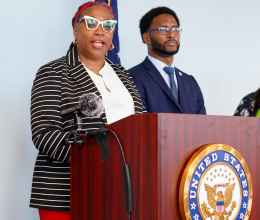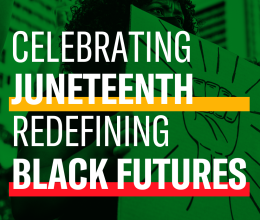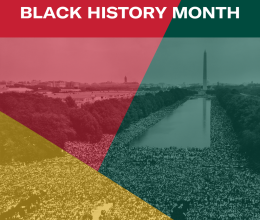Yesterday marked two years since Michael Brown was killed by police officer Darren Wilson in Ferguson, Missouri. Since then, “Mike Brown” has become shorthand for the crisis of law enforcement misconduct in communities of color, one name in an ever-growing list of Black victims of police violence. But Brown’s death also exposed another longstanding epidemic, one that is inextricably linked to the problem of racist policing: the criminalization of poverty.
In response to Brown’s shooting, the Department of Justice launched a civil rights investigation into the Ferguson Police Department. It found that Ferguson law enforcement officials were primarily concerned not with public safety, but with “generating revenue.” Officers aggressively enforced minor municipal code provisions like traffic and parking rules, charging fines as a penalty. For those who were unable to pay their fines on time, the municipal court issued arrest warrants and imposed additional fines and fees. In other words, Ferguson was punishing poor people for being poor.
Of course, this practice is not limited to Missouri. But here in Massachusetts we have seen recent progress. Just two days ago in Commonwealth v. Henry, the Supreme Judicial Court ruled unanimously that a judge must consider a criminal defendant’s financial circumstances when ordering her to pay restitution to the victim of her crime. The court recognized that allowing a judge to impose an impossible restitution order on a poor defendant “simply dooms the defendant to noncompliance.” A defendant who cannot afford to pay restitution risks being hauled into court, held in custody, charged warrant fees, or even arrested. As the court noted in its opinion, “Burdening a defendant with these risks by imposing restitution that the defendant will be unable to pay violates the fundamental principle that a criminal defendant should not face additional punishment solely because of his or her poverty.”
The Henry decision comes on the heels of another unanimous ruling affirming in the words of the Court that “our law does not permit the punishment of the homeless simply for being homeless.” David Magadini, a homeless person living in Great Barrington, entered the lobby of a mixed-use private building to avoid freezing to death in the bitter winter cold. In Commonwealth v. Magadini, the SJC held that Magadini was entitled to present a defense of necessity to the jury, recognizing that a homeless person should not be punished for trespassing as a last resort to save his own life. Together, the rulings in Magadini and Henry make a strong statement that the criminalization of poverty should have no legal grounding in Massachusetts.
While this progress is heartening, we still have a long way to go to ensure that being poor is not a punishable offense in the Commonwealth. Just last week, the Committee for Public Counsel Services and Equal Justice Under Law filed a challenge to the practice of jailing defendants—before they have even been tried for, much less convicted of, a crime—because they cannot pay bail. As the petition points out, “Although th[e] basic rule [that no one can be jailed for being poor] has long been a pillar of our legal system, it is overlooked as a matter of daily practice in courtrooms and jails throughout the Commonwealth.”
Massachusetts must continue to take a stand against the criminalization of poverty. When money is a condition for freedom, when a failure to pay a fee results in an arrest warrant, when surviving on the streets is a crime, police involvement in people’s lives becomes routine. Mike Brown’s death is a tragic reminder of the consequences of a law enforcement system that protects and serves its own interests rather than the interests of the people.
Hallie Pope was a legal fellow for the ACLU of Massachusetts.






